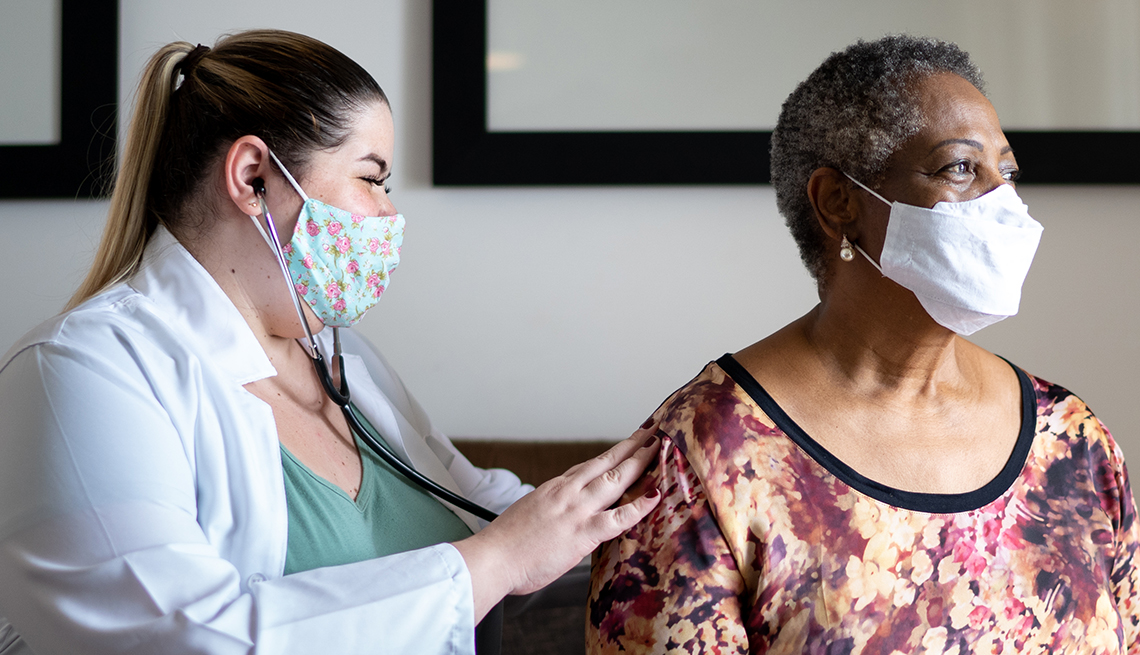Similarly, only 44.6 percent of Blacks underwent an angioplasty with a stent, more formally known as a percutaneous coronary intervention, or PCI, compared with 58.1 percent of whites.
"Put simply, people of color receive less [health] care — and often worse care — than white Americans,” Austin Frakt, director of the Partnered Evidence-Based Policy Resource Center in the Veterans Affairs Boston Healthcare System and a senior research scientist in the Harvard T.H. Chan School of Public Health, who was not part of this study, wrote earlier this year in a blog post for The New York Times. “African American patients tend to receive lower-quality health services, including for cancer, HIV, prenatal care and preventive care, vast research shows. They are also less likely to receive treatment for cardiovascular disease, and they are more likely to have unnecessary limb amputations."
Insurance plays a role
As of 2018 the portion of Blacks with health insurance increased to more than 88 percent because of the Affordable Care Act, according to a March 2020 Kaiser Family Foundation analysis of Census Bureau data. In 2010 nearly 1 in 5 Blacks younger than 65, the age at which most people of all races qualify for Medicare, was uninsured.
But since 2016 the percentage of uninsured Blacks has been creeping up from a low of 10.7 percent.
Uninsured people are more likely to postpone getting the health care they need or skipping it entirely — three times more likely than those with insurance to say they have not been to a doctor or clinic in the past 12 months, the foundation's researchers say. And they are less likely to get screenings that can detect or prevent chronic conditions that can lead to worse problems.
In 2017 non-Hispanic Black patients had higher death rates from cardiovascular diseases than non-Hispanic whites, according to the federal Centers for Disease Control and Prevention (CDC). Their death rate from several types of cardiovascular diseases, including a buildup of cholesterol on the walls of arteries called atherosclerosis, was 285.5 per 100,000 people versus 220.1 for whites.
Heart disease is the leading cause of death for non-Hispanic Blacks, as it is for all Americans, including those age 45 and older. But Blacks overall are 20 percent more likely to die from heart disease than non-Hispanic whites, the CDC says. Black men fared worse than Black women — 351.3 deaths per 100,000 for men versus 236.5 for women — though both genders died of cardiovascular diseases at greater rates than whites.
The heart study's senior author, Saraschandra Vallabhajosyula, M.D., said it is important for medical professionals to evaluate how a patient's race, “along with their sex, age, insurance status and socioeconomic status,” may influence the care they are provided.
See more Health & Wellness offers >
"The complex interplay of these important nonclinical risk factors, also called social determinants of health, need careful evaluation. Only when we eliminate these disparities can we say health care is truly equitable,” Vallabhajosyula, a fellow of interventional cardiology at the Emory University School of Medicine in Atlanta, said in a statement.





































































